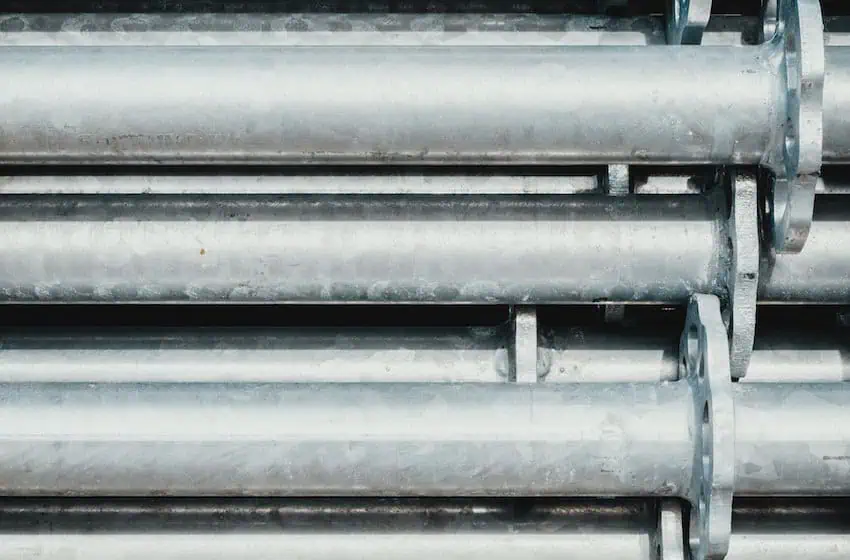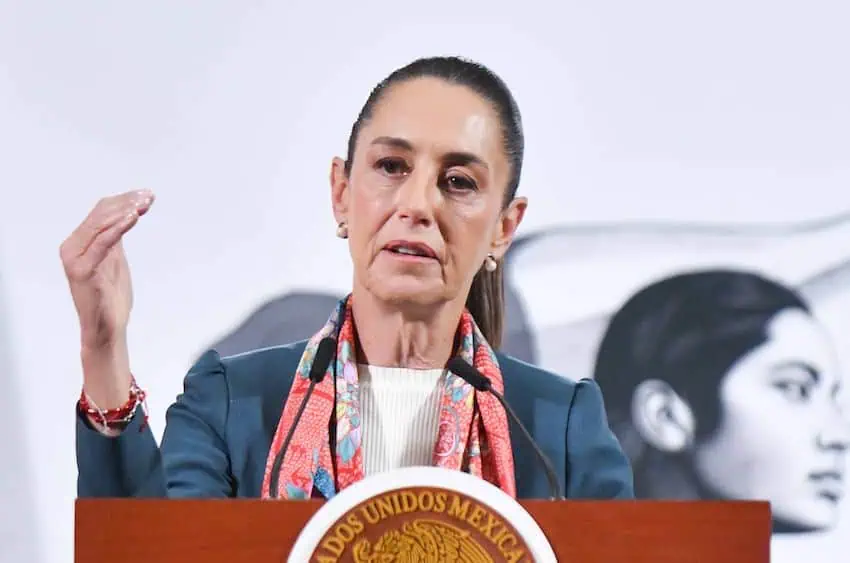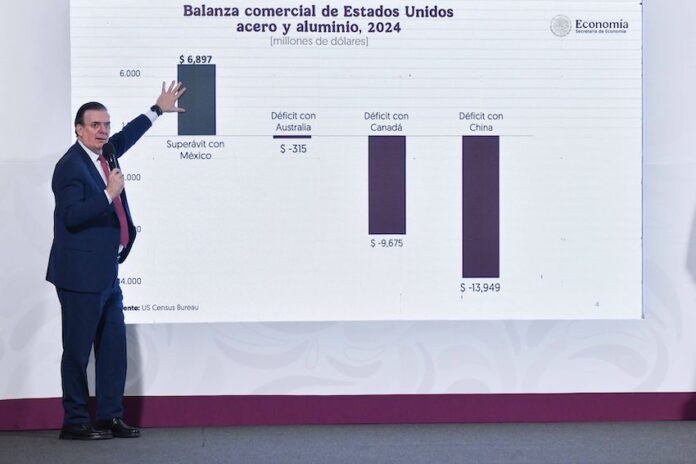The 25% tariffs on steel and aluminum imports announced by United States President Donald Trump on Monday are illogical and a “bad idea” with regard to Mexico, Economy Minister Marcelo Ebrard said Tuesday.
Speaking at President Claudia Sheinbaum’s morning press conference, Ebrard said he will present Mexico’s case against the imposition of the tariffs on Mexican steel and aluminum to U.S. officials next week.
President Trump signed an executive order imposing 25% tariffs on steel and aluminum.
This is an America First policy that will strengthen American manufacturing, protect workers, safeguard our national security, and help MAKE AMERICA RICH AGAIN. 🇺🇸 pic.twitter.com/zgUhcxXB2g
— The White House (@WhiteHouse) February 11, 2025
The tariffs are set to take effect on March 12 and, as things stand, will apply to all countries’ steel and aluminum exports to the United States.
“It’s a big deal. This is the beginning of making America rich again,” Trump said Monday as he signed a proclamation restoring section 232 (national security) tariffs on all steel and aluminum imports regardless of where they come from.
“… Our nation requires steel and aluminum to be made in America, not in foreign lands,” he said.
Trump said in his proclamation that his nominee for commerce secretary, Howard Lutnick, had informed him that “imports of steel articles from Canada and Mexico have increased significantly to levels that once again threaten to impair U.S. national security.”
He also said that an increase in Mexico’s steel imports from China “support a conclusion that there is transshipment” of Chinese steel to the United States via Mexico.
On Tuesday morning, Ebrard presented data that showed that Mexico imports more steel and aluminum from the United States than it exports to the U.S. He rejected the assertion that Mexican exports of steel have increased significantly, displaying a graph that showed that the volume of the alloy shipped to the United States from Mexico last year was the same as that sent north between 2015 and 2017.

The United States had a surplus with Mexico of just under US $6.9 billion on steel and aluminum trade in 2024, according to U.S. Census Bureau data presented by the economy minister.
“Therefore their balance is favorable. … The numbers are in their favor. We import more than we export,” Ebrard said before pointing out that the United States has deficits on steel and aluminum trade with Australia, Canada and China.
He said that putting tariffs on Mexican steel and aluminum would be “very unusual” given that the United States sells more of those metals to Mexico than it buys from its southern neighbor.
“This tariff is not justified,” Ebrard said.
“… If we have more imports of steel and aluminum from the United States [than exports] what is being argued as the reason to impose tariffs is not logical,” he said.
“… These tariffs are a bad idea … because the three countries are integrated,” Ebrard said, referring to Mexico, the United States and Canada — free trade partners for more than 30 years — and the integration of their economies across various sectors, especially the automotive industry.

“So what is Mexico going to do? … The instruction we have from President Sheinbaum is: Number 1 — consultations with the new [U.S.] administration to present the information we have,” he said.
Ebrard said he will be able to “officially meet” with Lutnick and Jamieson Greer, Trump’s nominee for United States trade representative, once their appointments have been ratified by the U.S. Senate, which could happen this week.
“So next week I’m going to have personal communication … with both of them to present Mexico’s arguments [against the tariffs]. What are Mexico’s arguments? Those which I have just presented,” he said.
“Sometimes President Trump speaks about common sense, we’ll take him at his word — common sense, not a shot in the foot, not destroying what we have built in the past 40 years,” Ebrard said.
Sheinbaum said Monday morning that her government would respond to the U.S. tariffs on steel and aluminum once an official announcement had been made. If Mexico doesn’t succeed in winning an exemption to the tariffs through dialogue, it could implement its own reciprocal duties on U.S. steel and aluminum and/or other U.S. imports.
Trump imposed tariffs on Mexican steel and aluminum in 2018 during his first term as president, prompting Mexico to implement a range of retaliatory measures including duties on U.S. pork, apples and bourbon. The tariffs were lifted in 2019.
Last Monday, Trump agreed to pause planned 25% tariffs on all Mexican exports to the United States after Sheinbaum committed to deploying 10,000 National Guard troops to the northern border to combat the flow of drugs and migrants to the U.S.
With reports from Reforma and El Economista
